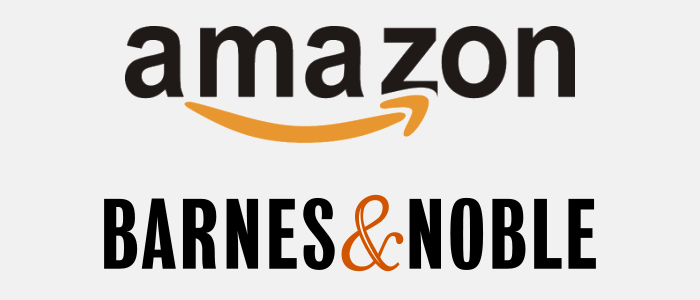As if the decision whether to seek traditional representation or master the self-publishing route for a writer wasn’t a big enough headache already, the latest round of news between the two largest selling e-book vendors isn’t helping. A writing friend said it best when she said “this Amazon vs. Barnes & Noble thing is getting ugly.”
So what is going on exactly?
According to multiple online sources, including NY Times.com and The Huffington Post, Barnes & Noble will no longer sell Amazon published books in their stores.
Let’s backtrack just a bit, and explain that both Barnes & Noble and Amazon each own their very own publishing divisions: Barnes & Noble has Sterling Publishing and Amazon has a new imprint with Houghton Mifflin Harcourt called New Harvest.
Barnes & Noble released a statement that implies Amazon’s search for exclusivity in the publishing market has prohibited the retail giant from selling certain e-books via the store’s e-reader (Nook). If Amazon has exclusive rights for certain titles, why should Barnes & Noble waste valued space in their stores to promote their biggest opponent’s products? Perhaps this has something to do with the new Kindle Select Program that Amazon offers to self-published authors.
With the Kindle Select Program, the author agrees to three months exclusivity with Amazon and also gains access to the Prime Lending Library, which could translate into more money depending on the download percentage of each author.
Adding flame to the fire, it was reported this week by Goodreader.com and the MSNBC.msn.com that Amazon would soon try their hand at their very own retail book store in Seattle, focused on selling their exclusives and e-reader (Kindle).
This game is exhausting. So let’s ask one of the most basic questions most people are already thinking:
What does a reader want?
A reader wants access to whatever book title he or she is looking for, whether it is online or in a physical book store. Period. A reader wants to search through multiple titles, read blurbs, and base their purchases on their personal preference, and not to worry with whether or not a certain title will be available at one place or another. And sometimes, the very same reader wants to enjoy a cup of coffee while browsing through the rows and rows of books at an honest-to-goodness bookstore.
What does a writer want?
A writer wants to sell books by as many avenues as possible. Period. Oh, and a writer wants to keep writing. That’s what they do. A writer doesn’t want to mess with the headaches of whether or not they want his or her titles to be exclusive with one vendor or another, closing the door on potential sales. Certain offers may be enticing, at first; but even the best offers have a silver-lining of sorts. This is one reason that self-publishing is taking off the way that it is. Self-published writers have control of everything – their title, their cover, and their future.
So what does this all mean?
- Barnes & Noble will not sell Amazon exclusive titles in the stores, but some titles will still be available online.
- Amazon is growing rapidly and the new “test” store in Seattle could mean more locations, giving Barnes & Noble even more competition.
- Self-published authors can still sell their e-books via both Barnes & Noble and Amazon if they so choose, and Digital Content Center can help!

